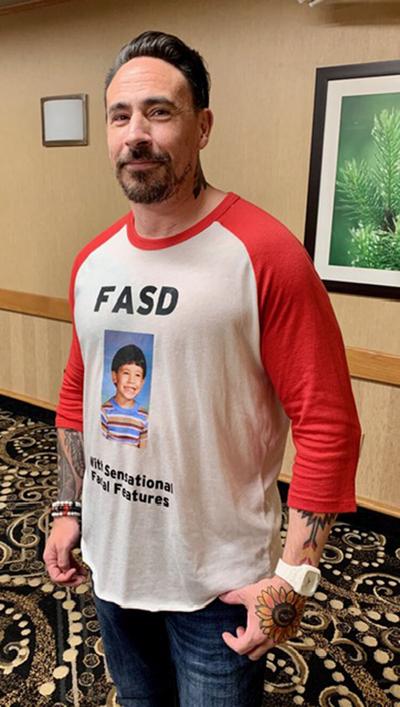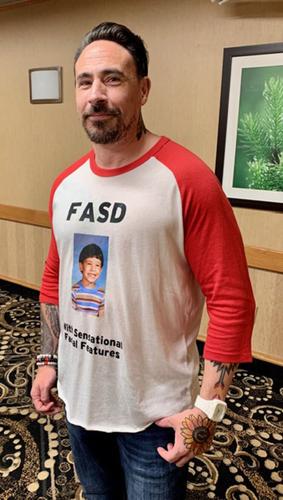Myles Himmelreich grew up knowing he had fetal alcohol spectrum disorder but didn’t understand what it meant.
It wasn’t until his 20s when he started attending conferences on the disorder that he developed a true understanding of how it affected him.
“Once I learned, understood and made sense and became accepting of my disability, that’s when I learned, understood and made sense and became accepting of myself,” he said, noting he could see what had been seen as bad behaviours and realize it was part of his fetal alcohol spectrum disorder, which is commonly referred to by its acronym, FASD.
Himmelreich was a keynote speaker at the NorWest Community Health Centres’ 21st annual Fetal Alcohol Spectrum Disorder training event on Thursday at the Victoria Inn.
The message he hoped to share with the crowd was that people with FASD are not victims who suffer.
“There is a lot of shame, blame and stigma associated with FASD,” he said.
Himmelreich said his mother was a young teenager when she became pregnant and had relationships filled with abuse and neglect and substance use.
“It’s not fair for people to judge her,” he said.
Instead of looking at FASD as bad behaviour that needs to be punished, Himmelreich wants people to see what he can do and to look at strategies and techniques individuals with FASD can use.
NorWest Community Health Centre’s FASD co-ordinator, Maureen Parkes, said over the more than 20 years they’ve conducted the training, they know the benefit of having people with lived experience of the fetal alcohol spectrum share their stories.
“It’s important we keep moving forward with this message,” she said, adding four per cent of Canada’s population has been diagnosed as being within the fetal alcohol spectrum.
FASD affects more people in Canada than autism spectrum disorder, cerebral palsy, and Down syndrome combined.
People are being diagnosed monthly at NorWest’s FASD clinic, which also offers supports to those affected.
“It’s out there; there’s no doubt,” Parkes said, noting there are many more people with the disorder who likely don’t know they have it.



Commented
Sorry, there are no recent results for popular commented articles.